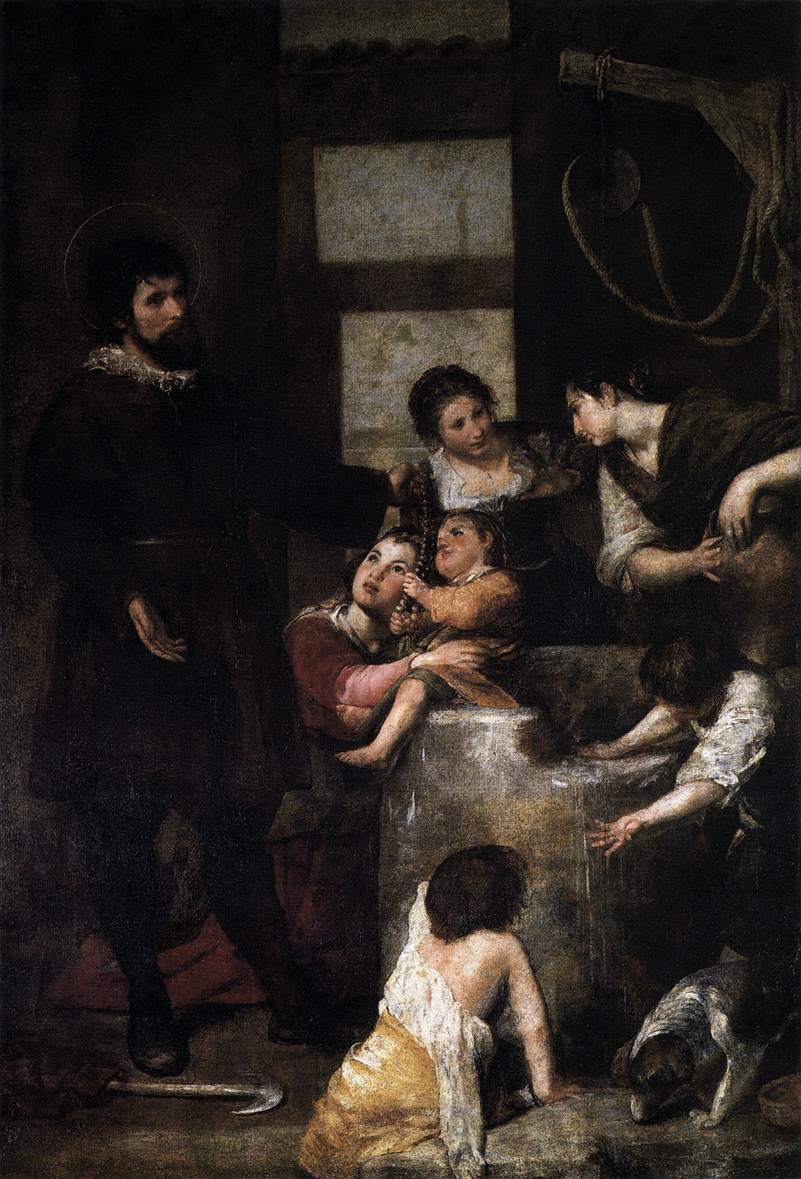Description
The painting The Miracle at the Well, created by the Spanish artist Alonso Cano in the 17th century, is a striking work full of interesting details. The artistic style used by Cano in this work is baroque, characterized by its drama, the use of light and shadow to create depth and the exaggeration of emotions.
The composition of the work is very interesting, since Cano uses a very forced perspective to create an effect of depth and three-dimensionality. In addition, the scene is full of characters and details, which makes the viewer feel immersed in the story that is being told.
Color also plays an important role in the work, as Cano uses a very rich and vibrant color palette to bring the characters and landscape to life. The bright, warm colors of the women's dresses contrast with the darker, earthier tones of the background, creating a very interesting visual effect.
The story behind the painting is also very interesting. The work depicts the miracle of the Samaritan woman at the well, a biblical episode in which Jesus meets a Samaritan woman at a well and speaks to her about eternal life. Cano depicts the scene with great detail and emotion, capturing the intensity of the moment.
Finally, there are some little-known aspects of the painting that are also interesting. For example, it is believed that the figure of the Samaritan woman was inspired by Cano's lover, which adds an element of intimacy and passion to the work. In addition, the painting was stolen twice throughout its history, which makes it a work with a fascinating history and full of mystery.

